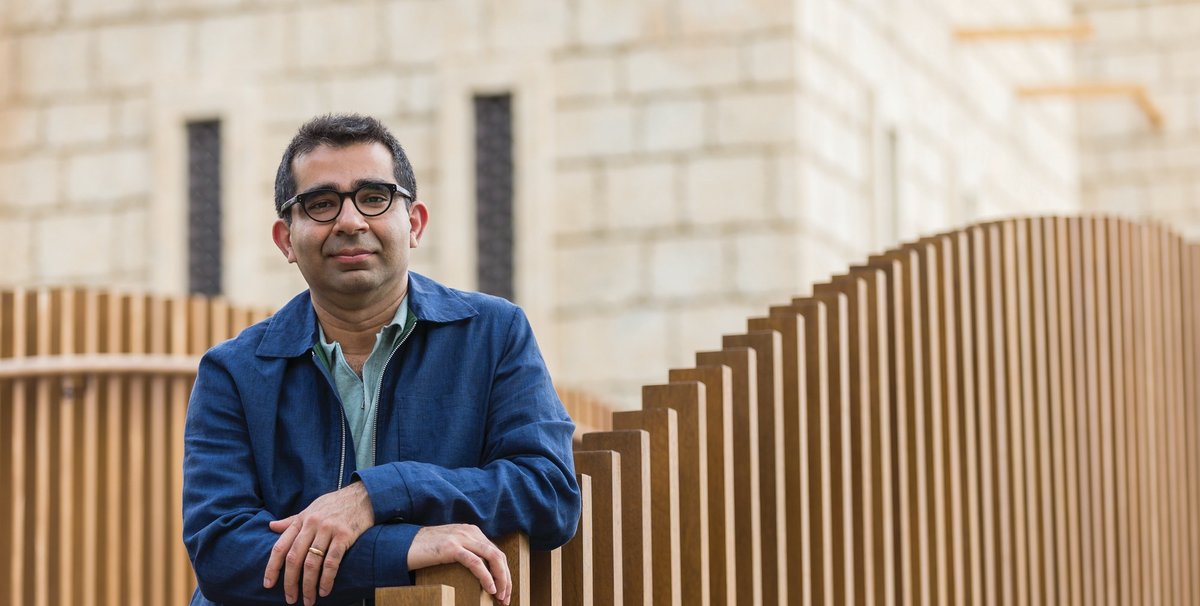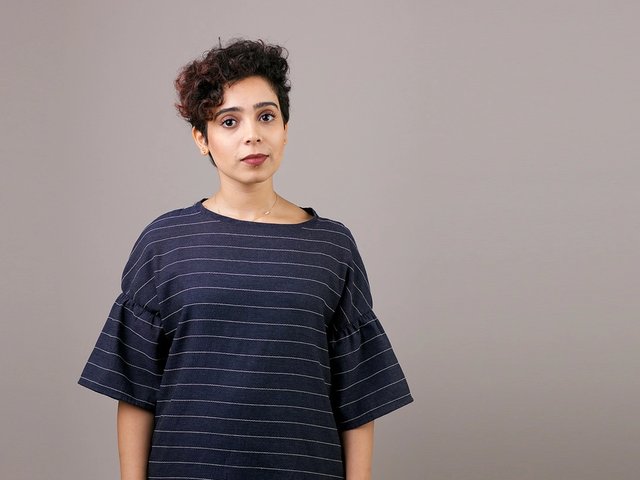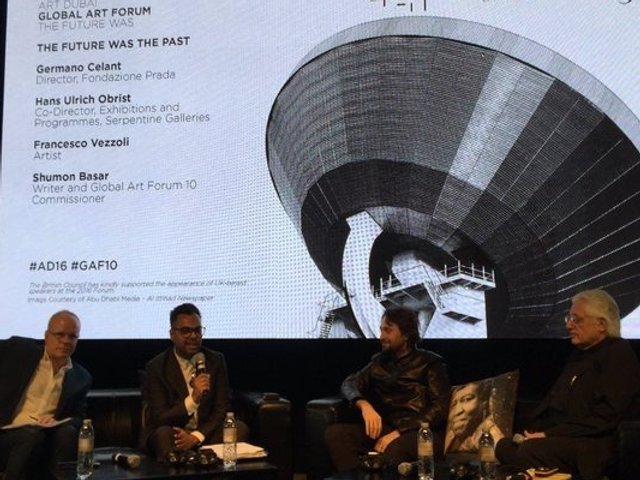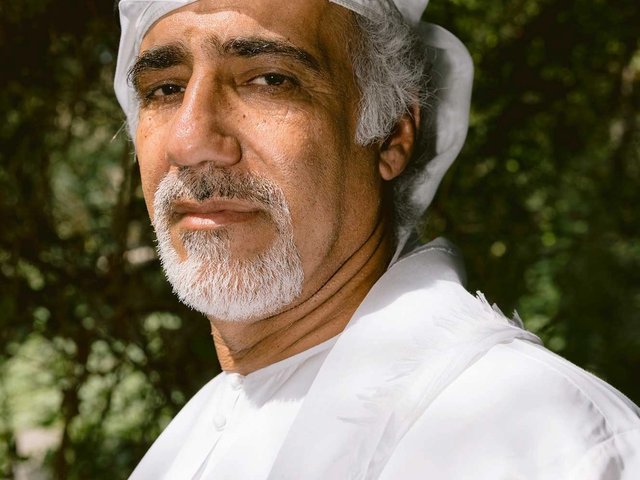A sense of play is very much at the fore at the UAE’s presentation at this year’s Venice Biennale (13 May-26 November). Rock, Paper, Scissors: Positions in Play is curated by London-based Hammad Nasar, who is at Art Dubai this week to speak about the pavilion (with Kevin Jones at the Julius Baer Lounge on 15 March).
His line up is notable for including, for the first time, UAE-national and resident artists, while the overall curatorial concept looks to examine artistic practices within the Emirates through the lens of playfulness. Artists Nujoom Alghanem, Sara Al Haddad, Vikram Divecha, Lantian Xie and Dr Mohamed Yousif all bring to the table works that are a combination of pre-existing, new commissions and, intriguingly, refabrications of “lost” works. “It was important for me that each artist has the opportunity to present more than a single work, and where possible to create new work, resurrect lost works or expand past projects,” says Nasar. “It is time for the UAE pavilion to address the complexities of its art practices, its diverse demographics and the development of its artistic infrastructure. This is only possible because of the collective and cumulative dialogue that previous and current exhibitions—in Venice and the UAE—have already built up.”
For Nasar, the interest in play dates back to his time working with the curatorial team of the 2007 Sharjah Biennial. Through the works of Mohammed Kazem, one of that year’s curators, and an exhibition he had recently organised (Window: 16 UAE Artists, at the Total Arts Gallery), Nasar was “introduced to a diverse set of artistic strategies that involved: collecting, repetition, the application of seemingly arbitrary rules, propositions that seemed like flights of fancy, record keeping through diaries and photographs, gestures based on experimentation and performance.” He found it interesting how the works on show shared a common theme of playfulness.
It is this question of the artistic impulse to play, and its origin, that forms the core of the pavilion. Most importantly, Nasar asks, “What does play do – in particular as part of the process of making a place home?” Rock, Paper, Scissors also brings into the fold a sense of historical conscience. “I am not a fan of what I call the ‘unhinged contemporary’”, explains Nasar, “that is, art practices or discourses that are not in critical conversation with the past.”
This resonates, somewhat melancholically, with the inclusion of the late Hassan Sharif in the Biennale’s main exhibition, Viva Arte Viva, curated by Christine Macel. “The influence of Hassan’s pioneering approach to art-making and art thinking in the Gulf is hard to over- state,” says Khulood Al Atiyat, Manager of Arts, Culture and Heritage at the Salama bint Hamdan Al Nahyan Foundation, commissioner of the UAE pavilion. “The 2017 exhibition explores the theme of playfulness as a connecting thread through multiple generations of artists in the UAE. We find a starting point in Hassan’s commitment to embracing ‘nonsense’, ‘ridiculousness’ and a sense of cheerful irony in his commentary on the rapidly changing social landscapes of the nation.”
Some may see the move to a more cohesive, open-ended and fluid curatorial concept in line with the overall direction of Macel’s exhibition. There, “trans-pavilions” explore themes such as joy and fear, time and infinity. Meanwhile, the arts scene in the UAE as a whole seems to be undergoing something of a change. Through the programming of this year’s Sharjah Biennial, Art Dubai and local exhibitions, there seems to be the subtlest of shifts towards a more cohesive, international outlook that truly reflects the demographics of the UAE itself.
As such, the UAE Pavilion is reaching out to institutions such as the NYUAD Art Gallery and Central Saint Martins (CSM), University of Arts London to explore further, and engage with, the themes of the exhibition. “The ambition here is to catalyse, not direct,” clarifies Nasar, and the exhibition will also be extended through an accompanying publication, in which newly commissioned texts by Murtaza Vali, Uzma Rizvi and Osman Samiuddin explore topics as diverse as ethnomusicology and cricket in the UAE.
In addition to his talk at the Julius Baer Lounge, Nasar will be in conversation with artist Hind Mezaina about play in art and its relationship to popular culture using her practice as an example. They will be speaking at Alserkal Avenue’s Majlis Talks on 16 March.





